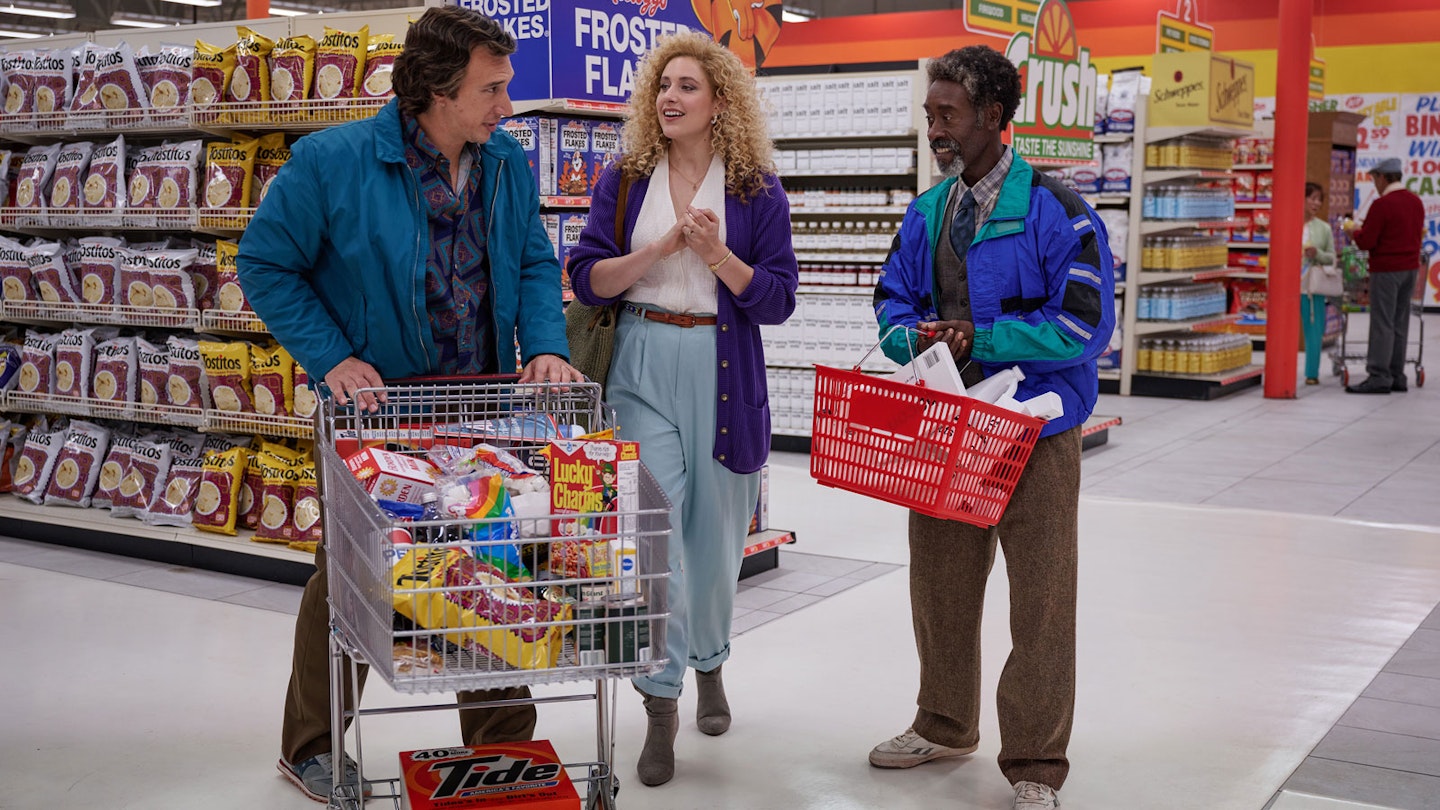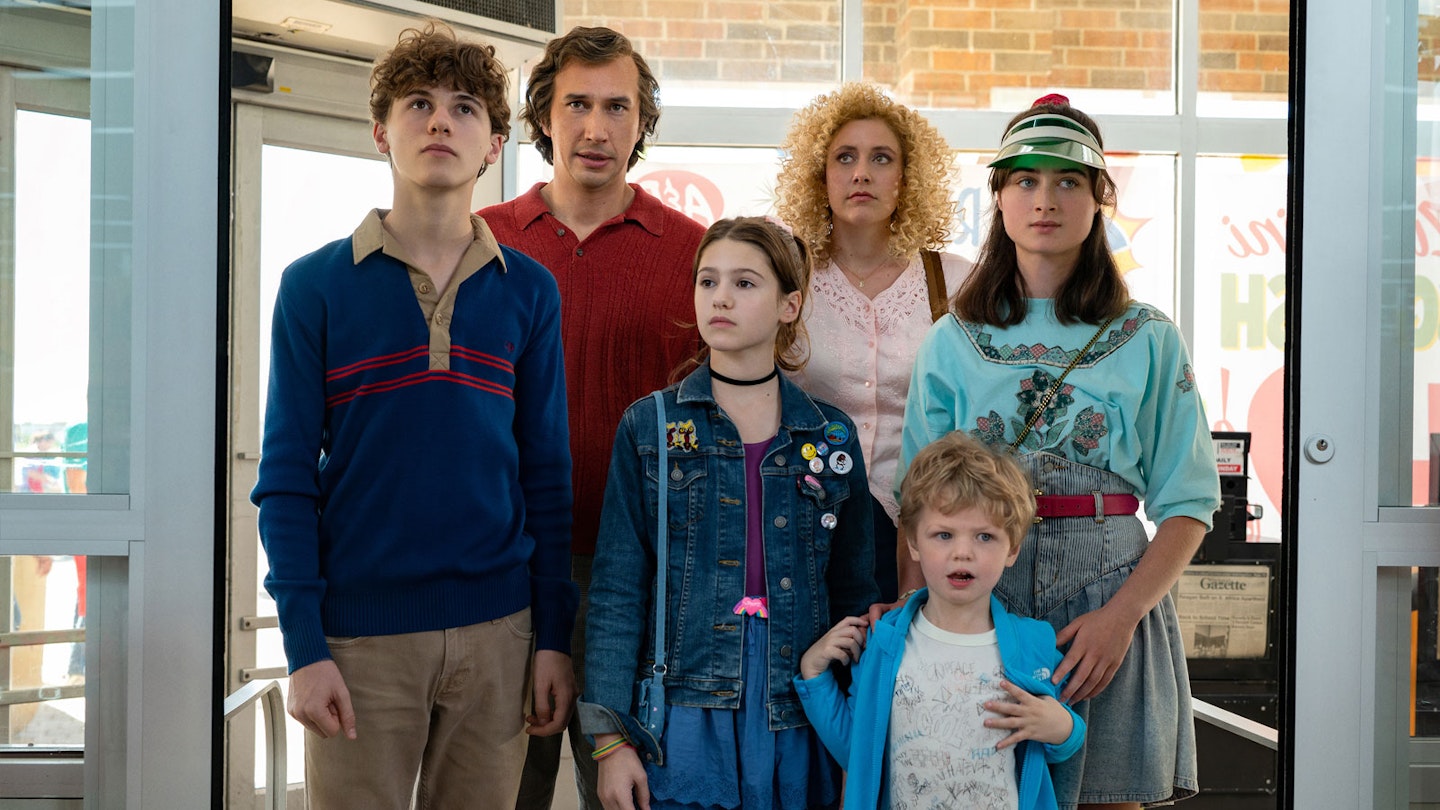Across three decades and around a dozen directorial efforts, we have come to know what A Noah Baumbach Film is. We might expect some lo-fi Millennial Manhattanite angst (Frances Ha, Mistress America); perhaps a Sundance-friendly approach to middle-age male malaise (Greenberg, While We’re Young); or a deeply honest probing of relationships and family (Marriage Story, The Meyerowitz Stories). White Noise, the filmmaker’s latest, has all of the above laced into it, full of his usual panache and intellectual rigour, but it feels deeply unusual for what we think of as A Noah Baumbach Film: this is an apocalyptic sci-fi spectacular, offering action set-pieces, dead bodies racking up, a sweeping Hollywood score from Danny Elfman — and a jarringly wacky post-credits dance sequence. It is an odd beast.

Adapted by Baumbach quite faithfully from the novel by Don DeLillo, it finds new meaning in the author’s ponderings on mortality and Cold War paranoia, given our current global anxieties — but it adopts a heightened take on the book’s ’80s setting, allowing for big hair and pastel, retro fashions. The film’s opening establishes its curious, arch sense of humour: Adam Driver is the rock-star professor of ‘Hitler Studies’ at the fictional ‘College-On-The-Hill’, quietly embarrassed at not yet being able to speak German. Together with Babette (Greta Gerwig, a delight to see in front of the camera again after six years away), the couple raise a gently chaotic family of high-achieving children from across each other’s marriages. There are also oddball bit-parts from the likes of Don Cheadle, Jodie Turner-Smith and André Benjamin as fellow professors.
You’ll need to hold on tight, when the film morphs from a quirky family drama into doom-mongering dystopia.
It takes a little getting used to. Baumbach is no stranger to mannered speaking but the dialogue here feels like a particularly specific stylistic choice — deliberately unnaturalistic line-readings that could have come from a Yorgos Lanthimos film. Add some flashes of Wes Anderson (a former Baumbach collaborator) in its absurdities and flights of fancy, and it may require some calibration to its freaky frequency.
You’ll need to hold on tight, too, when the film morphs from a quirky family drama into doom-mongering dystopia. While it’s hard not to read a pandemic allegory into it — lines like, “I want to know how scared I should be!” feel plucked from the spring of 2020 — Baumbach seems keen to summon an overarching fear of mortality in all forms. Both Jack and Babette speak constantly of death, and openly hope that the other will die first.
Does it all cohere? Almost. Even if they sometimes feel catapulted in from another film, the action sequences are actually very well shot, and if you can get your head around the tone, it can be slyly funny. It’s really only in the third act, with a murder-conspiracy subplot, that the film starts to feel a bit too sprawling and messy. But it at least leaves things on a high, with that dance sequence, set to an LCD Soundsystem banger — satire you can groove to.
